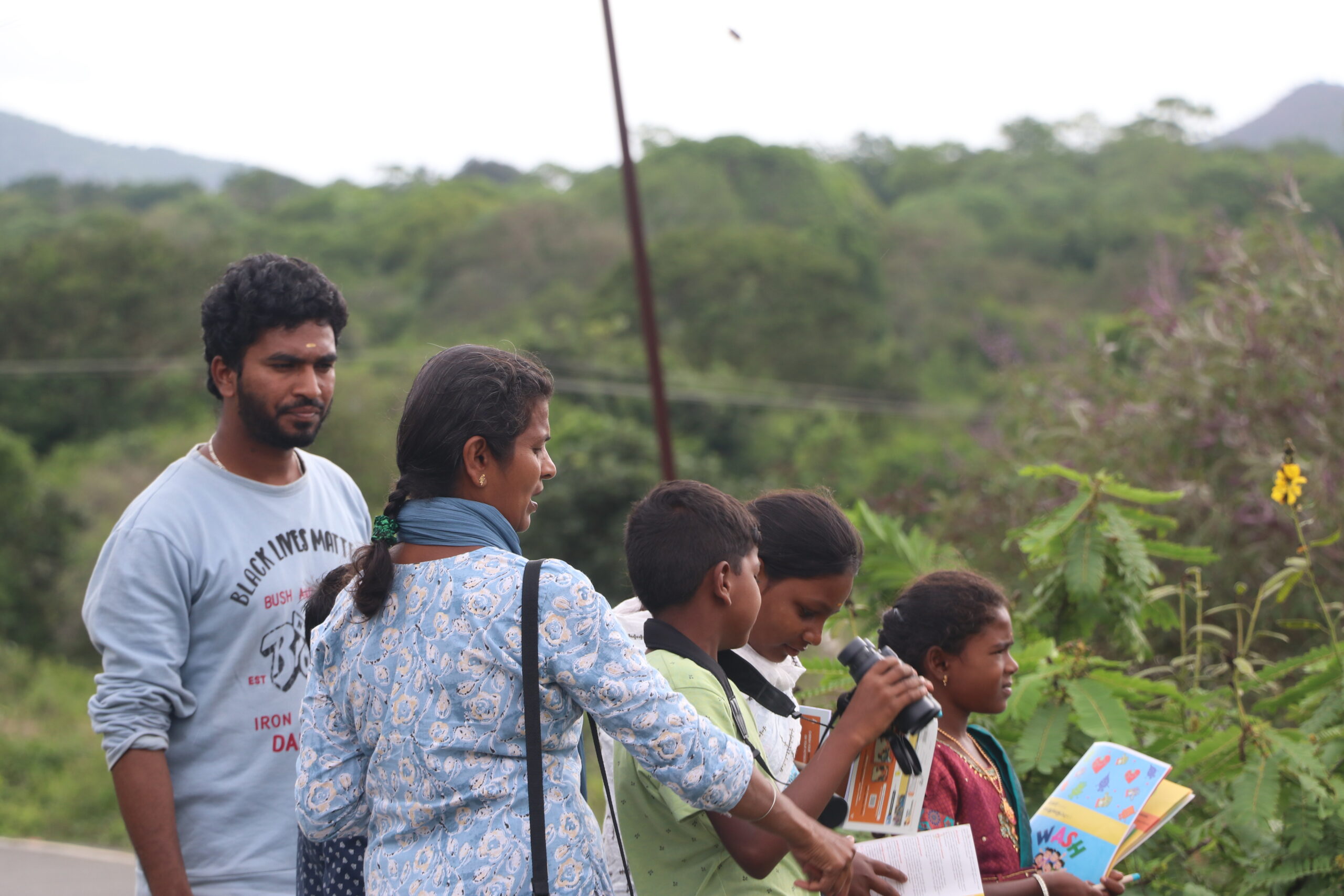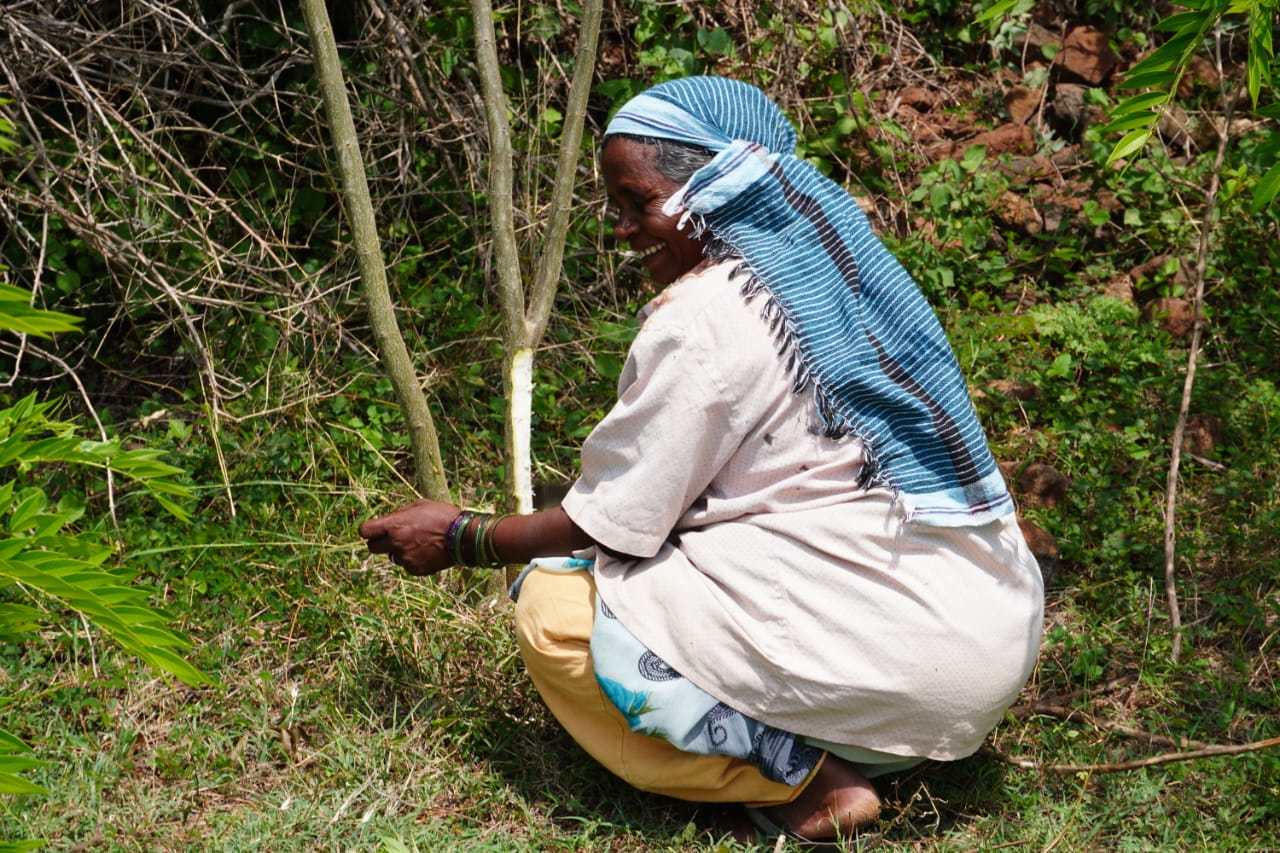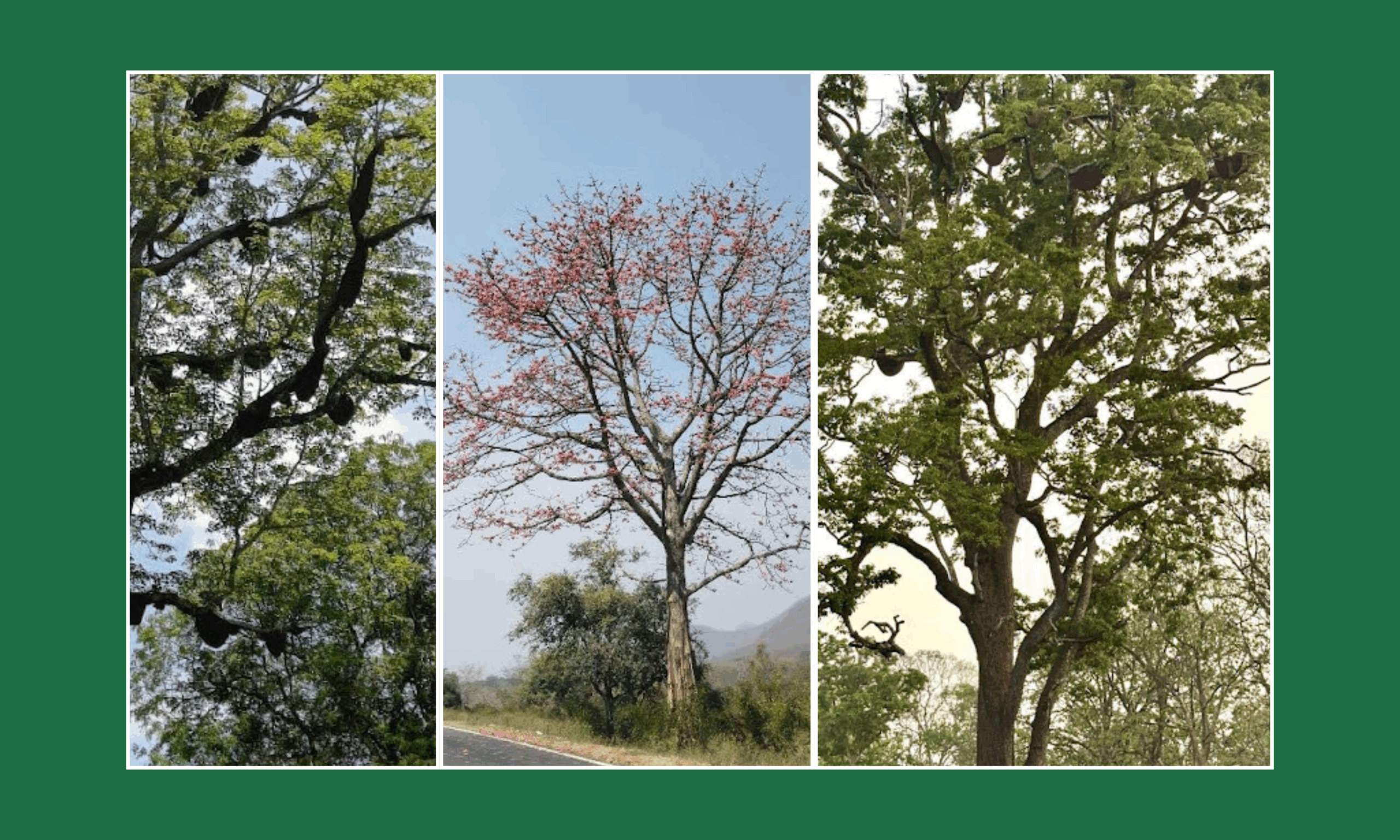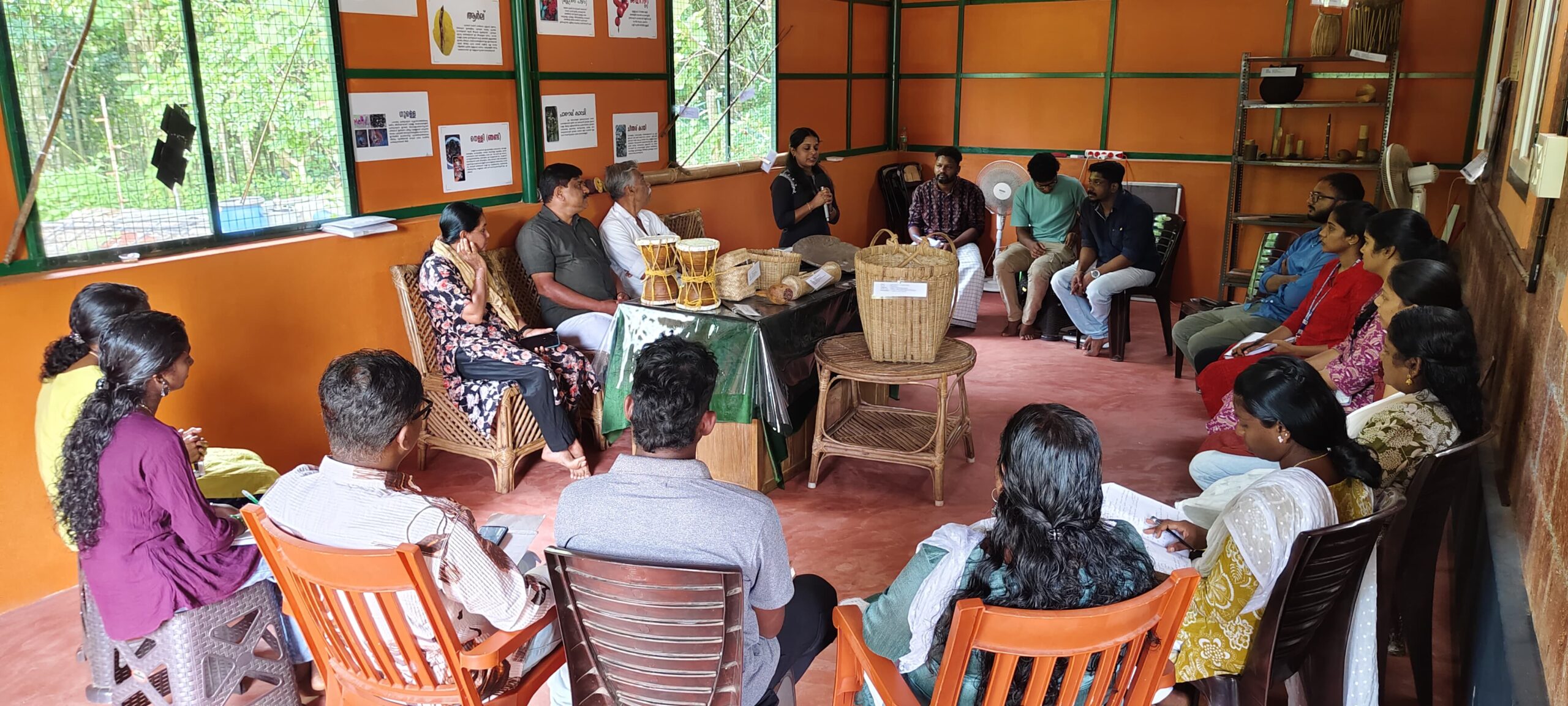By Monisha Ravi, Community Wellbeing, Silambarasan S.P., Biodiversity Conservation, and Vidya S., Climate Change
Monisha:
A successful WASH (Water, Sanitation, and Hygiene) Summer Camp was held in five rural villages: Konnavakkarai, Aracode, Pillur, Sigur, and Connoor, for 10 days. The camp aimed to educate children about the importance of water conservation, sanitation, and hygiene practices, as well as social awareness and Menstrual Hygiene Management, while promoting healthy habits and environmental stewardship.
Comprehensive Curriculum
The camp featured a comprehensive curriculum, covering topics such as:
– Water conservation and efficient use
– Proper handwashing techniques and hygiene practices
– Sanitation and waste management
– Menstrual Hygiene Management (MHM) – importance of menstrual health, hygiene practices, and dispelling myths
– Children’s Rights and the Importance of Protection of Children from Sexual Offences (POCSO) Act
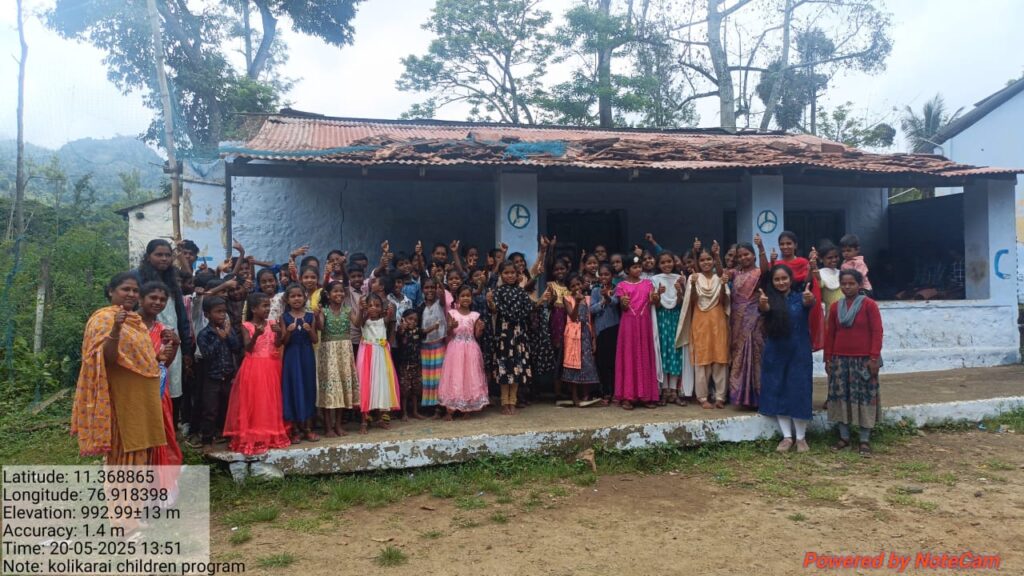
Interactive Learning
The camp featured interactive sessions, games, hand-washing dance, and activities designed to engage children and promote learning. These sessions encouraged participation, discussion, and critical thinking, helping children develop essential life skills.
Empowering Children
The camp empowered children with knowledge and skills to become agents of change in their communities. Participants learned about the importance of protecting the environment, promoting healthy practices, and respecting their rights and boundaries. The MHM sessions helped girls understand the importance of menstrual hygiene and manage their health with confidence.
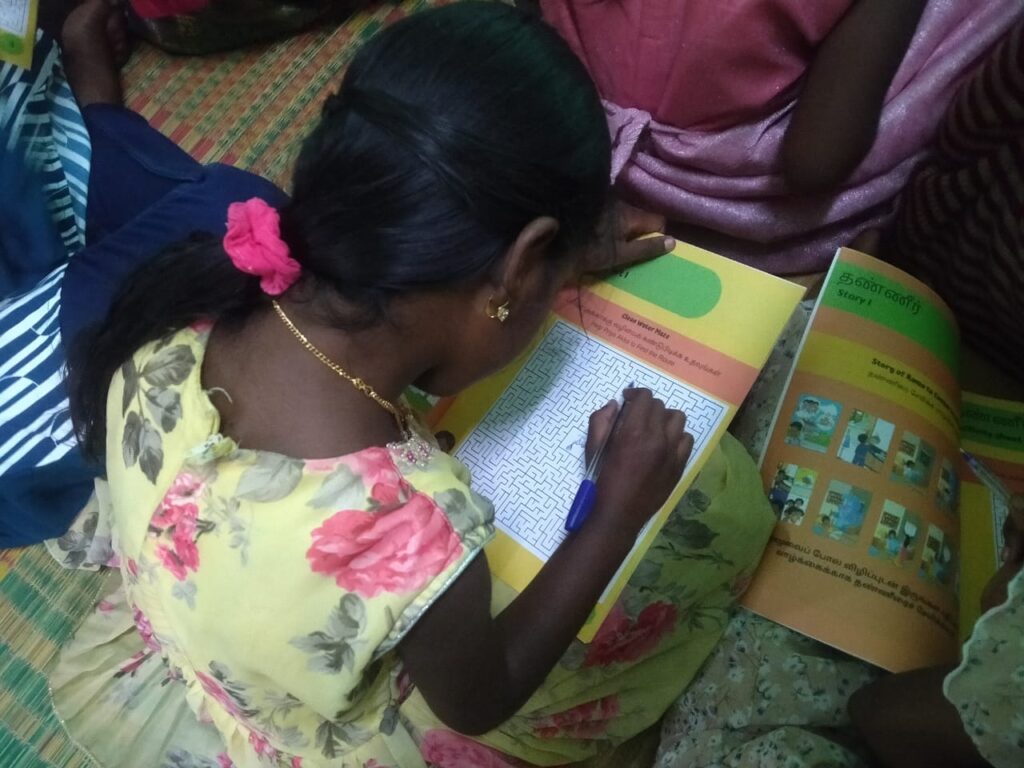
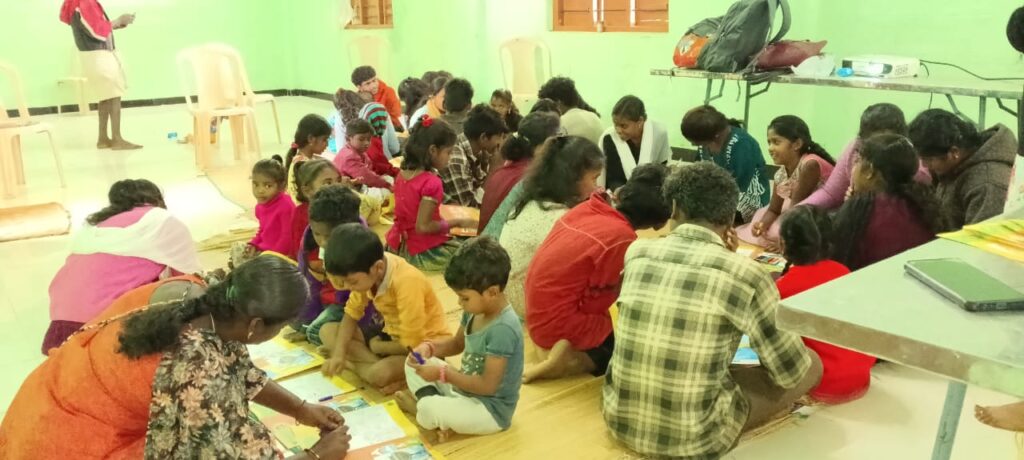
Students engaged in the activity session
The WASH Summer Camp’s impact extends beyond the individual participants. By promoting healthy habits, environmental awareness, and child protection, the camp contributes to creating a healthier and more sustainable community. The children, now equipped with knowledge and skills, are poised to become leaders in their communities, promoting positive change and development.
A Step towards a Healthier Future
The WASH Summer Camp is a significant step towards creating a healthier and more sustainable future for the children and communities in Konnavakkarai, Aracode, Pillur, Sigur, and Coonoor. By investing in children’s education and empowerment, we are building a foundation for long-term positive change and development. The success of the WASH Summer Camp demonstrates the power of community-based initiatives in promoting health, hygiene, and environmental awareness, while also addressing critical issues like child protection and menstrual health.
Interdisciplinary Learnings in Sigur through WASH, Biodiversity, and Climate Change
Vidya and Simbu
Simbu, Monisha and I, along with our climate educator Ponnamma and health workers Rani and Durga organised a two-day summer camp at Vazhaithottam, Sigur Center. The camp focused on engaging students with the theme “Impacts of climate change in biodiversity and health through interactive activities and experiential learning.” This was a unique opportunity for children to learn about the importance of water conservation, sanitation, and hygiene practices. The camp also explored the interconnectedness of climate change and biodiversity, highlighting their impact on our environment.
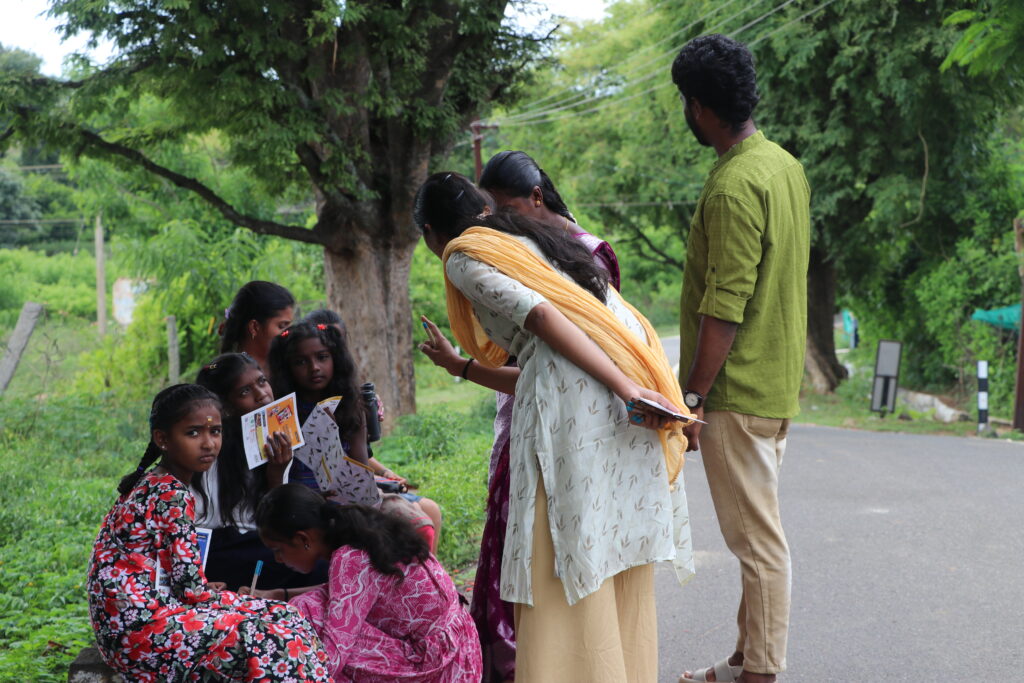
On 23rd May, 20 students from Bokkapuram and Vazhaithottam Village attended the camp. The day began with a thematic activity where students found five differences in a picture that showed a polluted and ‘clean’ version of the Earth. We then engaged students with an environmental quiz activity, where we showed how it is our responsibility to take care of the environment, as we share it with other beings. Through this quiz we emphasized how important it is to reduce waste and keep our surroundings clean. After tea, we did a biodiversity assessment activity which encouraged students to observe their surroundings, birds, landscapes, wildlife, biodiversity, direct and indirect sightings. Students shared both positive and negative observations. Photo on the right: Connecting with the environment through a nature walk.
Some quotes:
“We saw many waste that was thrown away all around, which animals also feed on.”
“There are many bird species that we were able to identify using the bird booklet.”
While we had planned a forest safari for post-lunch, it was cancelled due to rain. The day concluded with certificates and gift distribution.
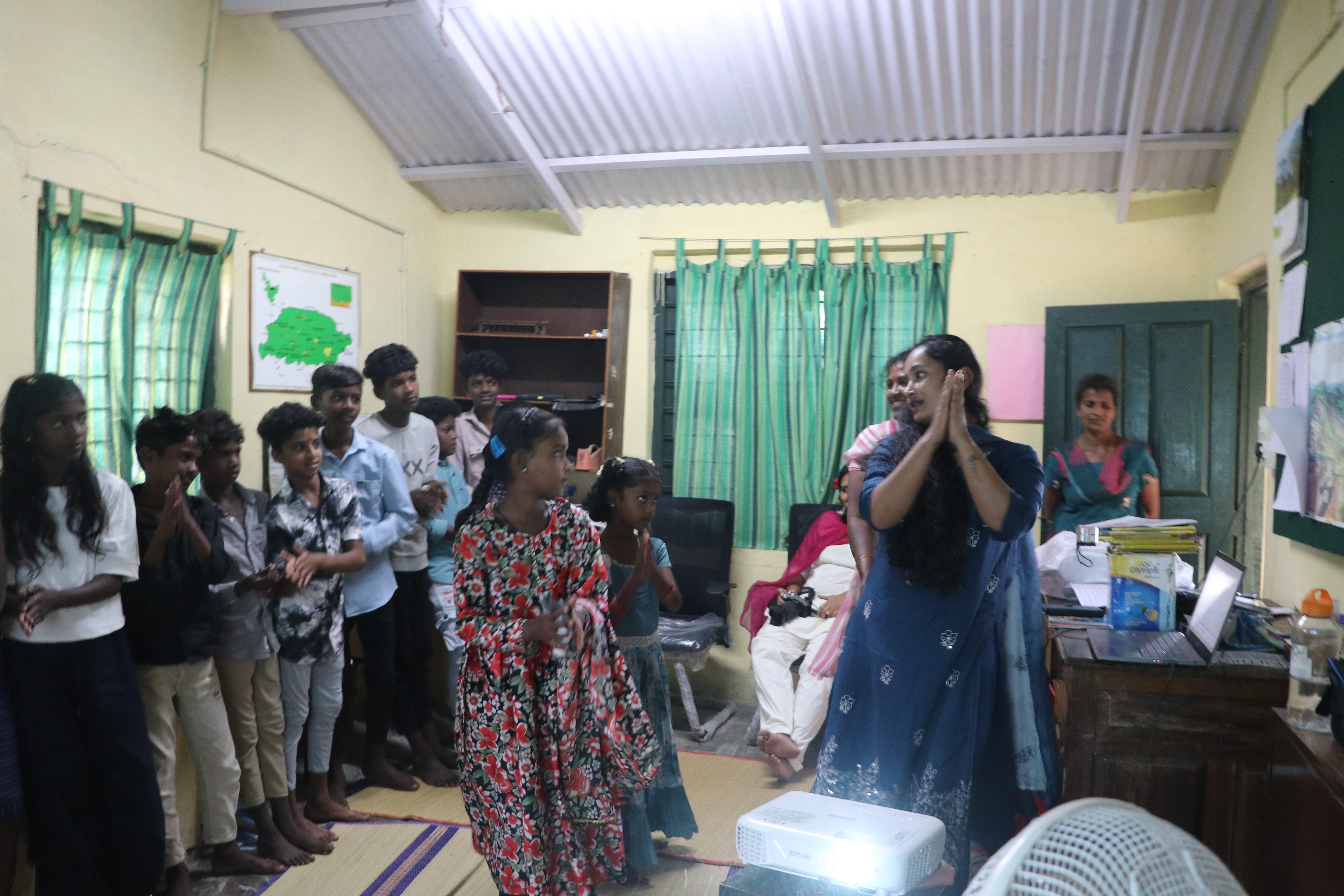
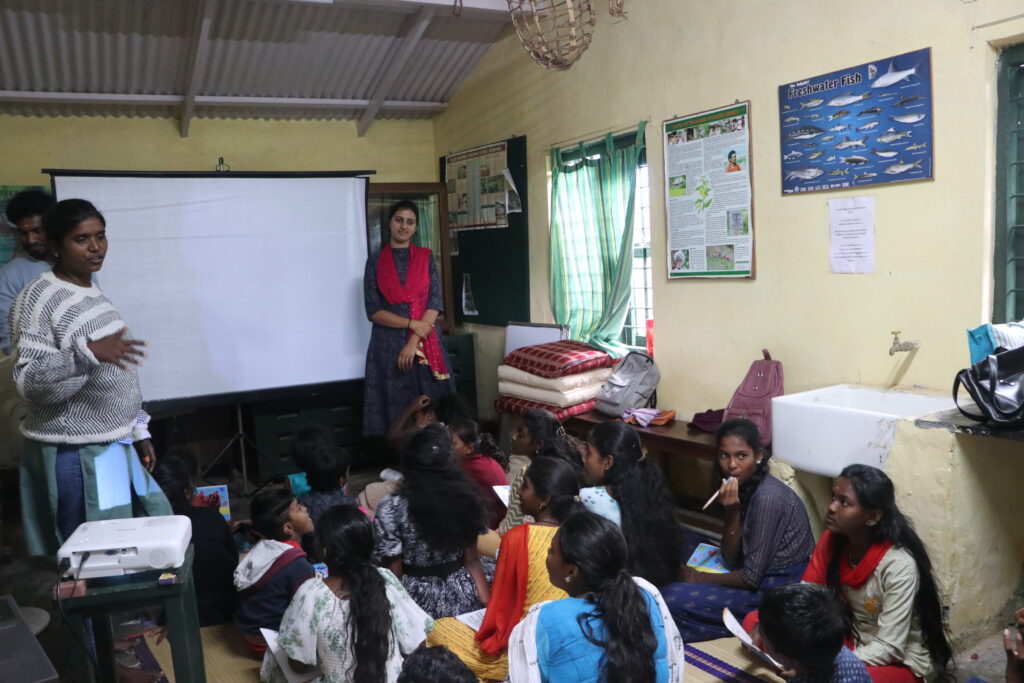
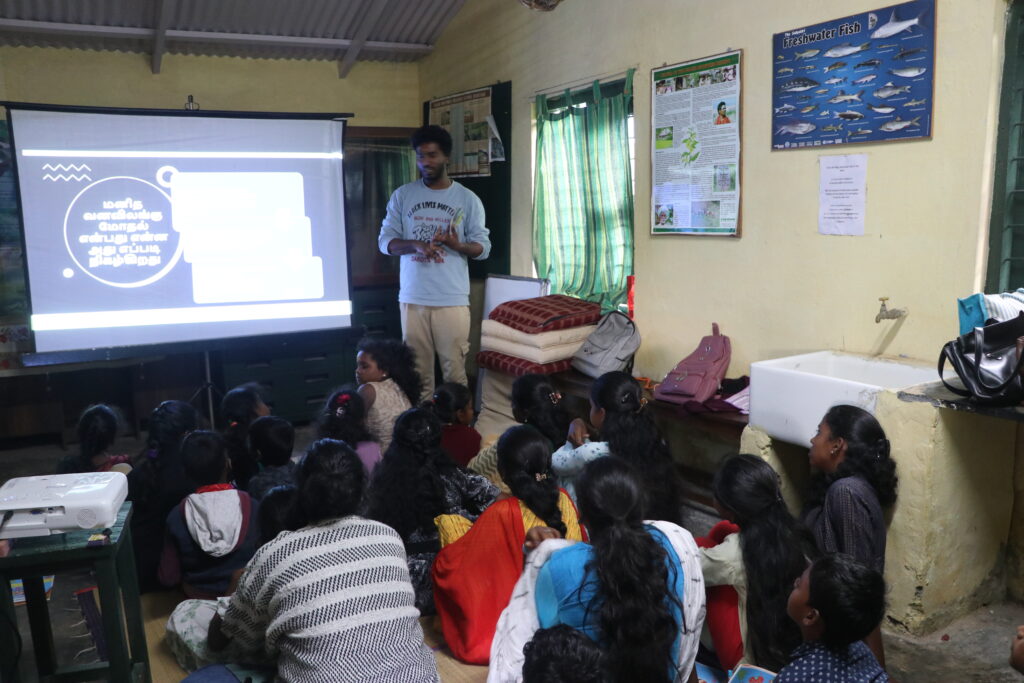
Learning about climate action, environmental conservation, and clean water (WASH)
On the next day, 24 students from Chokkanahalli and Semmanatham villages attended the camp. We started the day with a forest safari at Theppakadu Elephant Camp, where our group sighted a leopard, vultures, and other wildlife. For some of the team members, it was their first ever safari: we were all incredibly excited, myself included! Following the safari, we screened a movie on elephant interactions called “Kaliru”. Students found the film very informative and discussed the dos and don’ts of interacting with elephants. The screening was followed by sessions on climate change, health & nutrition, similar to the previous day. On both days, Monisha also provided a training on WASH that covers the topics mentioned in the section above, including menstrual hygiene, POCSO, handwashing and cleanliness, and water conservation. The event ended with the distribution of certificates and gifts.
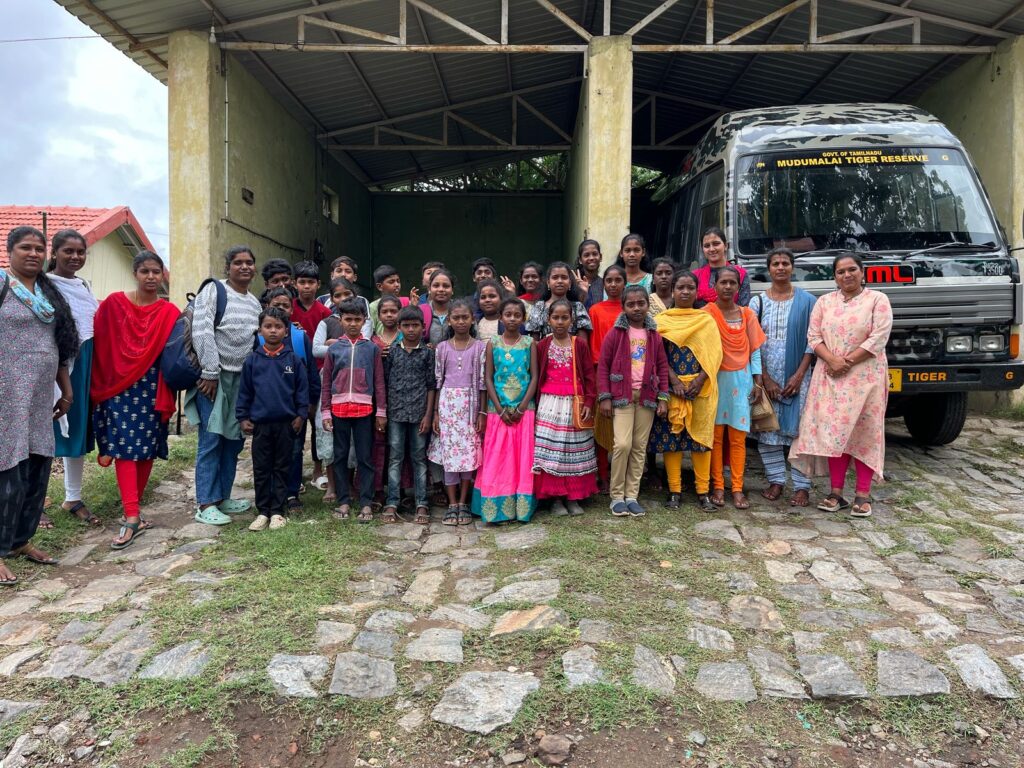
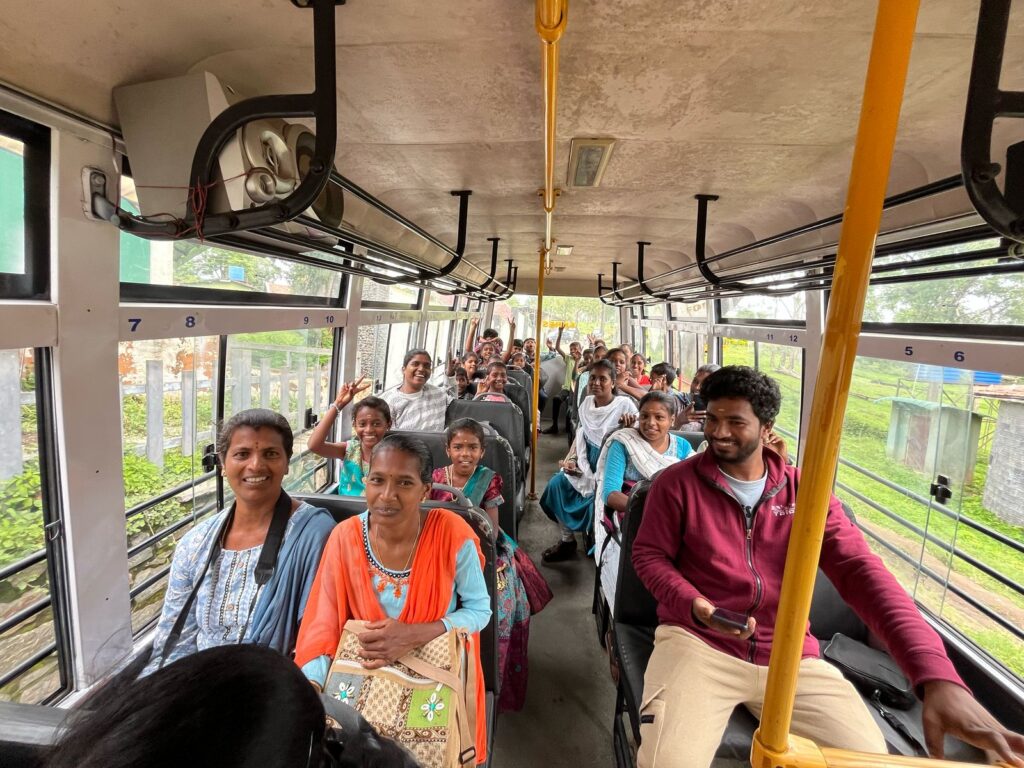
Experiencing the forest safari at Theppakadu Elephant Camp
We as a team felt it was great to work and learn together, and to connect concepts from our individual program areas through different interactive activities. It was a great experience.
Some quotes from the students:
- “It was our first forest safari where I was excited to see leopards, vultures, and elephants. The forest was quiet and there was no waste in the forest. I admired a lot.”
- “The “Kaliru” film was nice, we also got to know that we should not harm animals.”
- “Through the biodiversity assessment activity, for the first time, we are noticing so many bird species and other interactions around us.”
- “We were made aware of water usage and water conservation.”
- “We want our environment to be green with water, trees and no pollution.”
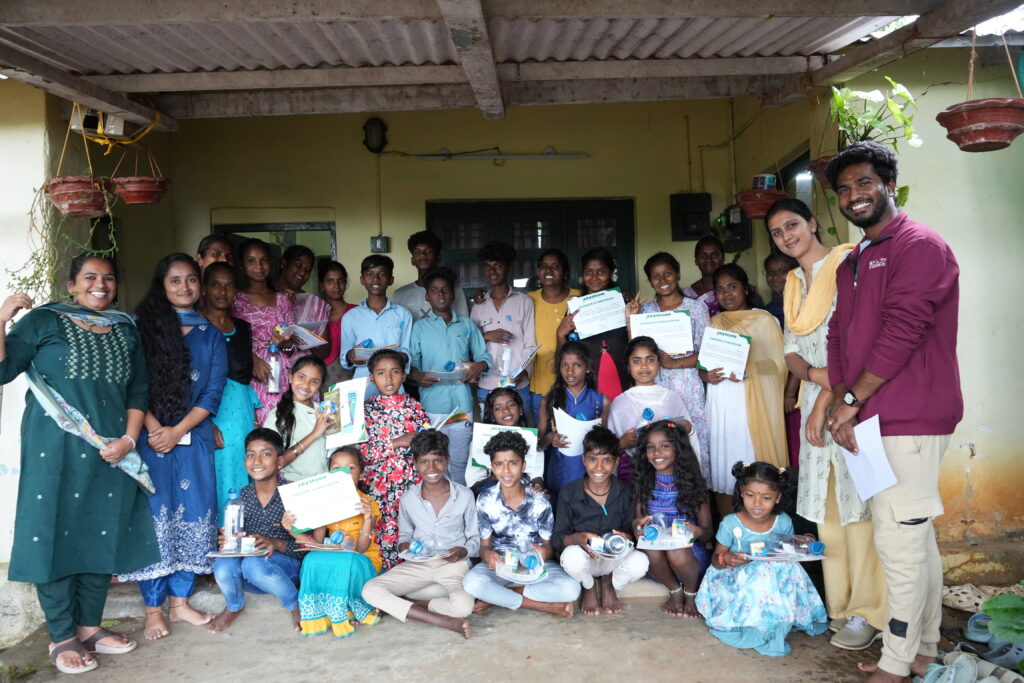
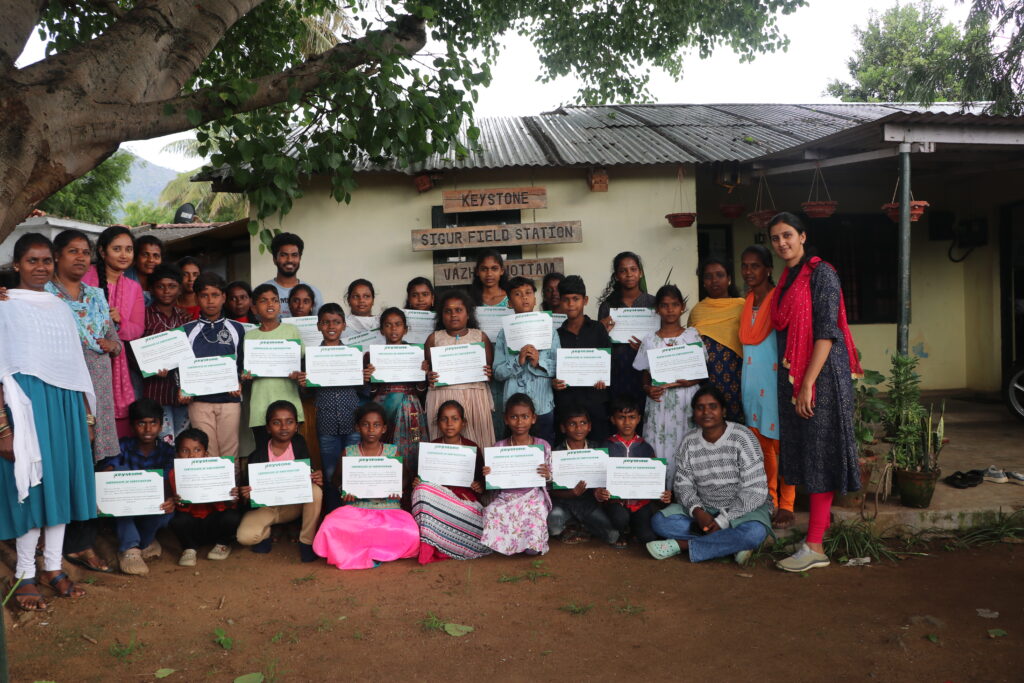
Photo Credits :Anokha & Sneha

